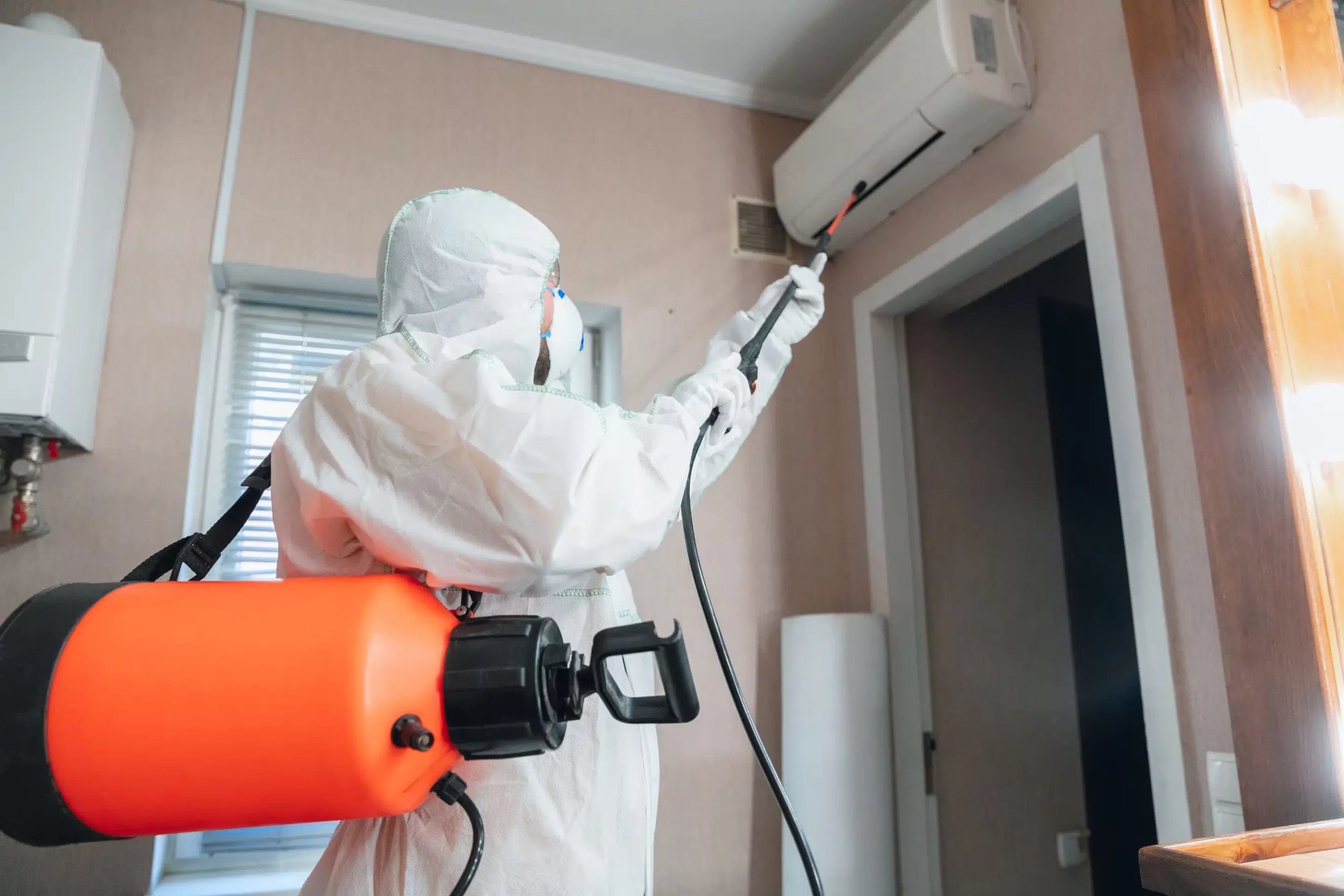Why You Should Schedule a Pest Inspection in Sydney Regularly
When it comes to maintaining a safe and healthy living environment, pest inspections are a critical component for homeowners in Sydney. Regular pest inspections can help identify potential infestations before they become a serious issue, ensuring that your home remains pest-free and safe for your family. This article delves into the importance of regular pest inspections, the common pests found in Sydney, the inspection process, how often you should schedule inspections, and tips for choosing a reliable pest inspection service.
Understanding the Importance of Regular Pest Inspections
Understanding the importance of regular pest inspection Sydney is essential for maintaining a healthy home. Pest infestations can cause significant damage to your property and pose health risks to you and your family. Regular inspections enable you to identify potential problems early, often preventing costly repairs and health concerns down the line.
The Role of Pest Inspections in Maintaining a Healthy Home
Pest inspections play a crucial role in maintaining the overall health of your home. These inspections not only detect existing infestations but also identify conditions that may lead to future problems. For instance, moisture accumulation in basements can attract termites, while clutter can provide a breeding ground for rodents.
By addressing these conditions during inspections, you create a healthier living environment. Professional inspectors have the expertise to spot issues that homeowners may overlook, making their insights invaluable. They can also provide recommendations on preventative measures, such as sealing entry points and improving ventilation, which can significantly reduce the likelihood of pests finding a way into your home.
How Regular Inspections Can Prevent Pest Infestations
Regular pest inspections are your first line of defense against potential pest infestations. By scheduling inspections at least once a year, you can catch issues before they escalate. Pest control experts use various techniques to check all areas of your property, ensuring nothing goes unnoticed.
Furthermore, being proactive in preventing infestations not only saves money in pest control treatments but also helps maintain the integrity of your property. Early identification and intervention can make a significant difference in managing pest-related threats. Additionally, many pest control companies offer integrated pest management (IPM) strategies, which focus on long-term prevention through a combination of biological, cultural, and physical controls, alongside chemical treatments when necessary. This holistic approach not only addresses current issues but also fortifies your home against future invasions, ensuring a safer and more comfortable living space for you and your family.

The Common Types of Pests in Sydney
Sydney’s unique climate and environment create a perfect breeding ground for various pests. Homeowners need to be aware of the most common types of pests they may encounter, including termites, cockroaches, rodents, and ants.
Identifying Different Pests and Their Threats
Termites are one of the most destructive pests found in Sydney, capable of causing severe damage to wooden structures. Early detection is vital, as they can live undetected in your home for years before their presence is apparent. These pests often enter homes through small cracks and crevices, making it essential to conduct regular inspections, especially in areas with high humidity or moisture, which termites find particularly inviting. Homeowners should also consider using preventative treatments, such as baiting systems, to deter these voracious eaters from making a meal out of your home.
Cockroaches are another common pest, known for carrying diseases and contaminating food. They thrive in warm, moist environments and can often be found in kitchens and bathrooms. Their rapid reproduction cycle means that a small infestation can quickly escalate into a larger problem if not addressed promptly. Rodents, including mice and rats, are notorious for their ability to reproduce quickly and can cause electrical hazards by gnawing on wires. Additionally, they can contaminate food supplies and spread diseases through their droppings. Ants may seem harmless but can quickly become a nuisance, especially in kitchens and outdoor areas. Certain species, like the Argentine ant, can form supercolonies that make them particularly difficult to eliminate. Read more about pests and their threats at Cockroaches are another common pest, known for carrying diseases and contaminating food. They thrive in warm, moist environments and can often be found in kitchens and bathrooms. Their rapid reproduction cycle means that a small infestation can quickly escalate into a larger problem if not addressed promptly. Rodents, including mice and rats, are notorious for their ability to reproduce quickly and can cause electrical hazards by gnawing on wires. Additionally, they can contaminate food supplies and spread diseases through their droppings. Ants may seem harmless but can quickly become a nuisance, especially in kitchens and outdoor areas. Certain species, like the Argentine ant, can form supercolonies that make them particularly difficult to eliminate. Read more about pests and their threats at https://milnepublishing.geneseo.edu/botany/chapter/threats-to-agriculture-insects-and-pathogens/
Seasonal Pests in Sydney and Their Impact
Each season in Sydney brings its own set of pest challenges. For example, during the warmer months, ants and mosquitoes become more prevalent, while cooler months may see an increase in rodents seeking warmth indoors. Mosquitoes, in particular, can be a significant annoyance, as they not only disrupt outdoor activities but also pose health risks by transmitting diseases such as Ross River virus. Understanding these seasonal patterns can help you stay one step ahead in keeping your home pest-free.
Moreover, being aware of seasonal pests means you can schedule inspections and treatments at optimal times, minimizing the chances of infestations taking root. For instance, late summer is an ideal time to address ant problems, as they are actively foraging for food to prepare for the cooler months. Similarly, autumn is the perfect time to seal any potential entry points in your home to prevent rodents from seeking shelter as temperatures drop. By being proactive and informed, homeowners can significantly reduce the risk of pest-related issues throughout the year.
The Process of a Pest Inspection
The pest inspection process is systematic and thorough. It typically involves a comprehensive examination of your property, including both interior and exterior areas, to identify signs of pest activity and potential entry points.
What to Expect During a Pest Inspection
During a pest inspection, a licensed pest control professional will assess various areas of your home, including attics, basements, crawl spaces, and around entry points like doors and windows. They will look for signs of pests, such as droppings, nests, and damage to wood structures.
The inspection may also include checking for environmental factors that could attract pests, such as moisture issues or vegetation touching your home. Professionals use specialized tools and techniques to ensure a thorough assessment, which is often more detailed than a homeowner might attempt on their own. For instance, they might use infrared cameras to detect hidden moisture that could indicate a termite infestation or employ moisture meters to assess humidity levels in critical areas. This level of scrutiny helps in identifying not just existing infestations but also potential risks that could lead to future problems. To understand more about pest inspections click here.
Post-Inspection: Understanding Your Pest Inspection Report
After the inspection, you will receive a detailed report outlining the findings. This report is essential for understanding the condition of your home regarding pest infestations. It will typically include identified issues, recommended treatments, and advice on how to prevent future problems.
Reviewing this report with your pest control provider is crucial, as they can guide you through the next steps and help you develop a pest management plan tailored to your needs. Additionally, many pest control companies offer follow-up services, which can include regular monitoring and maintenance to ensure that any treatments applied are effective and that your home remains pest-free. Understanding the lifecycle of common pests and the seasonal patterns of their activity can also be beneficial, as it allows homeowners to be proactive in their pest management efforts, ensuring a safer and healthier living environment.
The Frequency of Pest Inspections
Determining how often to schedule pest inspections can depend on several factors, including your home’s history, location, and specific pest risks. Generally, most experts recommend at least one inspection per year.
Determining How Often You Should Schedule Inspections
For properties that have had previous pest issues or are situated in areas with a high prevalence of pests, more frequent inspections may be warranted. Some homeowners may benefit from biannual inspections, particularly in situations where wood pests, such as termites, pose a significant threat. Regular inspections can help catch any potential infestations early, which can save homeowners significant costs in damage repair and pest control treatments.
Additionally, if you notice signs of pest activity, it’s best to schedule an inspection sooner rather than later to mitigate any potential problems. Common indicators include droppings, gnaw marks, or unusual noises within the walls. Being proactive about pest management can not only protect your home but also ensure a healthier living environment for you and your family.
Factors Influencing the Frequency of Pest Inspections
Several factors can influence how often you should schedule inspections, including:
Geographic Location: Certain regions have higher pest populations, particularly in warmer climates.
Home Age: Older homes may require more frequent inspections due to their vulnerabilities.
Surrounding Environment: Proximity to wooded areas, parks, or bodies of water can increase pest exposure.
Previous Infestations: A history of pest problems can necessitate more vigilant inspection schedules.
Moreover, the type of landscaping around your home can also play a crucial role in pest activity. Homes with dense vegetation or standing water can attract a variety of pests, including mosquitoes and rodents. Implementing proper landscaping techniques, such as maintaining a clear perimeter around the foundation and ensuring proper drainage, can help reduce pest risks. Additionally, seasonal changes can affect pest behavior; for instance, during the fall, rodents may seek shelter indoors as temperatures drop, making it essential to be vigilant during this time of year.
Lastly, it’s important to consider the impact of climate change on pest populations. Warmer temperatures and shifting weather patterns can lead to increased pest activity and extended breeding seasons. As a result, homeowners in affected areas may need to adjust their inspection schedules accordingly, taking into account not only the current pest threats but also potential future risks posed by a changing environment.

Choosing a Reliable Pest Inspection Service in Sydney
When it comes to pest inspections, choosing a reliable service is crucial for getting accurate assessments and effective treatment options. Not all pest control companies are created equal, so it’s essential to do your research.
Key Considerations When Selecting a Pest Inspection Company
When selecting a pest inspection company in Sydney, consider their reputation, experience, certifications, and review online testimonials. It’s beneficial to choose a provider with a solid track record of effectively managing and preventing pest infestations.
Inquire about their methods and technologies for inspections and treatments. A reliable service should be transparent about their processes and willing to answer any questions you may have.
The Role of Professional Pest Inspectors in Sydney
Professional pest inspectors play a vital role in ensuring the long-term health of your home. Their expertise enables them to identify potential pest issues before they escalate, ultimately saving you time and money. Furthermore, their knowledge of local pest trends and behaviors allows for tailored solutions to fit your specific needs.
Regular partnerships with professional inspectors can provide peace of mind, knowing that your home is safeguarded against unwanted pests. By investing in their services, you are proactively maintaining a safe and healthy environment for your family.
In conclusion, scheduling regular pest inspections in Sydney is an invaluable way to protect your home and family. By understanding the importance of these inspections, identifying common pests, recognizing the inspection process, determining frequency, and selecting reliable services, you can take proactive measures to ensure your home remains pest-free.
Related : Choosing the Right Exterminator in Sydney for Lasting Pest Solutions

